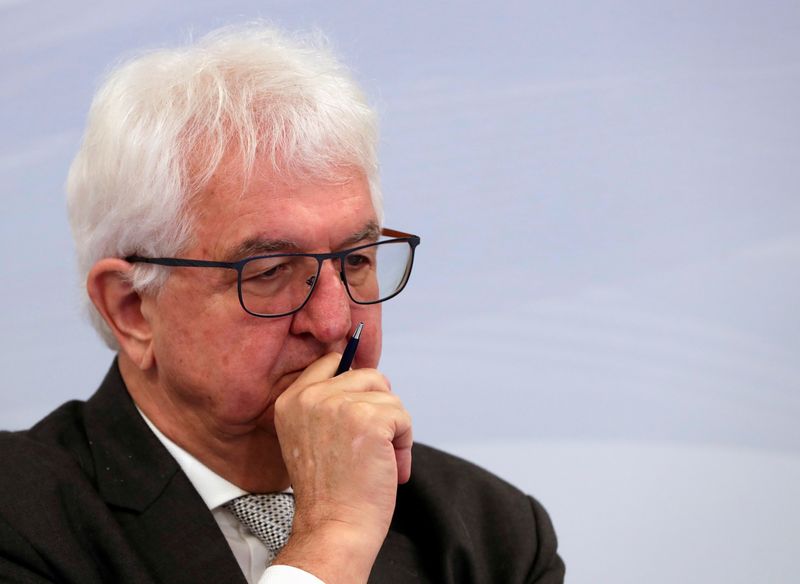ZURICH (Reuters) -The European Central Bank should hike interest rates as many as three times this year to combat inflation, hawkish policymaker Robert Holzmann told the Salzburger Nachrichten paper in an interview.
"I think it would be appropriate to take at least two or even three steps. These could be smaller ones, i.e. 0.25 percentage points each. If this were to happen by December, it would have the effect that by 2023 the deposit rates for banks, which are now minus 0.5 percent, would be in positive territory," the Austrian central bank governor was quoted as saying.
"You'll still be quite a bit away from the natural nominal interest rate. So there is still a long way to go. But it would be a good signal to the public."
ECB policymakers are becoming more vocal about normalising monetary policy more quickly than previously expected, with more publicly backing a July rate hike.
Asked if the ECB was too late to act, Holzmann said: "I would not say too late. But perhaps action could have been taken earlier. The U.S. is about half a year earlier in the economic cycle. In this respect, it is fitting that the ECB is acting later. Perhaps the Fed was also a little late."
Asked about the U.S. Federal Reserve's move to raise rates by half a percentage point, which supported the dollar against the euro and could fuel imported inflation, Holzmann said: "The ECB does not pursue an exchange rate target. But we are watching it closely and taking it into account in our decisions. We will probably not be able to compensate for the difference we have now by raising interest rates, but at least the gap will in all likelihood not increase significantly."

He also played down the danger of a wage-price spiral in which demands for higher salaries lock in inflation.
"We are looking closely at wage settlements. And that does not worry us for the time being. But the danger is always there in principle. If it came to that, we would have to raise interest rates more strongly to avoid possible second-round effects. That could affect the real economy, but at the moment that is not yet the case."